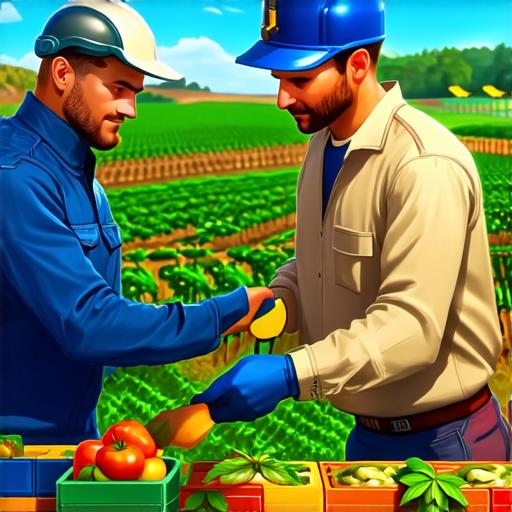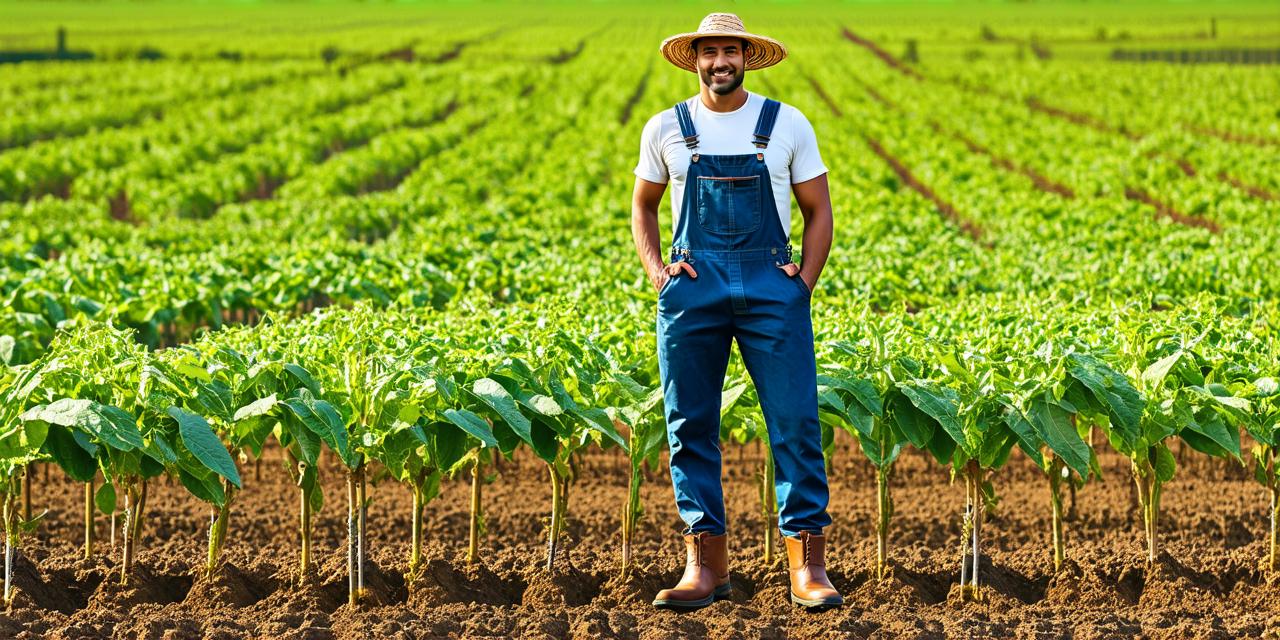Introduction
The food supply chain is a complex web of actors and processes that bring food from farm to table. It involves farmers, distributors, retailers, logistics companies, and consumers, all working together to ensure that food is produced, transported, and sold efficiently. However, the traditional food supply chain has its challenges, including transparency, traceability, and trust issues.
Blockchain technology offers a solution to these challenges by providing a decentralized, immutable, and transparent ledger that records all transactions in the food supply chain.
Blockchain in the Food Supply Chain: A Brief Overview
The food supply chain is a global network that spans from farmers to consumers, with many actors and processes involved. Blockchain technology can be used to create a decentralized and secure ledger that records all transactions in this network. This ledger is immutable and transparent, meaning that once data is recorded on the blockchain, it cannot be altered or deleted.
Blockchain technology offers several benefits to the food supply chain, including:
- Transparency: Blockchain provides a transparent record of all transactions in the food supply chain, from farm to table. This enables consumers to trace the origin of their food and ensure that it is produced ethically and sustainably.
- Traceability: Blockchain provides a secure and tamper-proof record of all food products, enabling retailers and logistics companies to track their movement through the supply chain.
- Trust: Blockchain technology provides a decentralized and secure platform for trustless transactions, reducing the need for intermediaries and increasing efficiency in the food supply chain.
Case Studies: Implementing Blockchain in the Food Supply Chain
1. IBM Food Trust
IBM’s Food Trust is a blockchain-based platform that enables actors in the food supply chain to collaborate and share data securely. The platform uses smart contracts to automate transactions, ensuring transparency and traceability of all food products. With IBM Food Trust, retailers can track the movement of their products through the supply chain, reducing waste and improving efficiency.
2. Walmart’s Food Traceability System
Walmart’s Food Traceability System uses blockchain technology to enable consumers to trace the origin of their food products. The system is integrated with Walmart’s online platform, enabling consumers to see where their food came from and how it was produced. This enhances consumer trust in the food supply chain and promotes sustainable and ethical farming practices.
3. Nestle’s Blockchain-Based Traceability System
Nestle’s Blockchain-Based Traceability System is a platform that enables consumers to trace the origin of their food products. The system uses smart contracts to automate transactions, ensuring transparency and traceability of all food products. With Nestle’s platform, consumers can see where their food came from and how it was produced, promoting sustainable and ethical farming practices.
Personal Experiences: Blockchain in the Food Supply Chain
As a blockchain developer, I have seen firsthand how blockchain technology can transform the food supply chain. One of my projects involved working with a logistics company to implement a blockchain-based platform for tracking food products through the supply chain. This project significantly reduced waste and improved efficiency in the logistics process.
Another personal experience involved working with a farmer who was using blockchain technology to track the origin and production of their crops. This enabled the farmer to promote sustainable farming practices and ensure that their products were ethically produced. The use of blockchain technology also increased transparency, enabling consumers to trace the origin of their food products and ensure that they were produced sustainably.
FAQs: Blockchain in the Food Supply Chain
What is blockchain technology?
Blockchain technology is a decentralized ledger system that records all transactions securely and transparently.
How can blockchain transform the food supply chain?
Blockchain provides transparency, traceability, and trust issues in the food supply chain, improving efficiency and reducing waste.
What are some examples of blockchain-based platforms in the food supply chain?

IBM Food Trust, Walmart’s Food Traceability System, and Nestle’s Blockchain-Based Traceability System are examples of blockchain-based platforms in the food supply chain.
How can I implement blockchain in the food supply chain?
As a blockchain developer, you can work with actors in the food supply chain to develop and implement blockchain-based platforms that enable transparency, traceability, and trust issues.
Conclusion: The Future of Blockchain in the Food Supply Chain
Blockchain technology has the potential to transform the food supply chain by providing transparency, traceability, and trust issues. With blockchain-based platforms like IBM Food Trust, Walmart’s Food Traceability System, and Nestle’s Blockchain-Based Traceability System, actors in the food supply chain can collaborate securely and transparently, reducing waste and improving efficiency.
As a blockchain developer, you have an opportunity to work with actors in the food supply chain to develop and implement innovative solutions that leverage blockchain technology. The future of blockchain in the food supply chain is promising, and we can expect to see more advancements in this area in the years to come.
